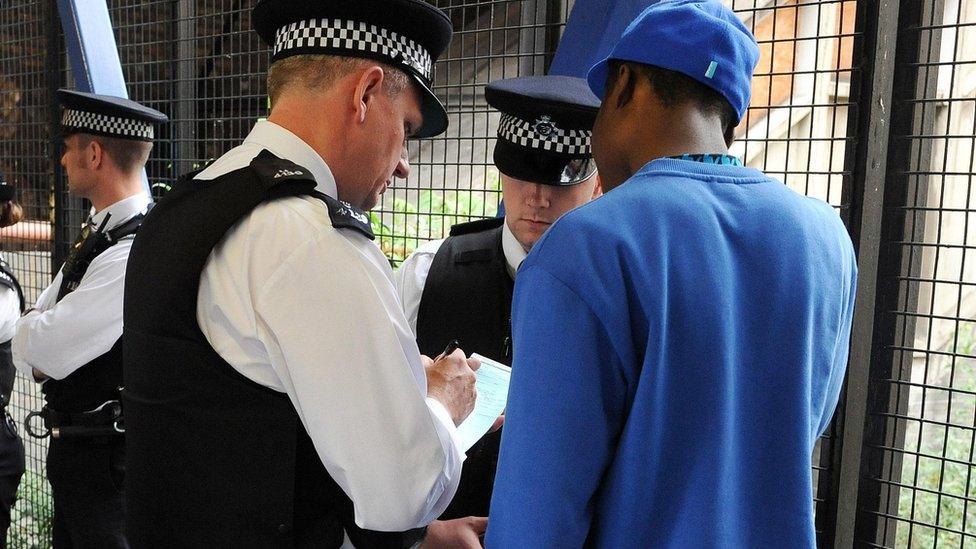Black and in the police: 'I've been called a traitor'
- Published
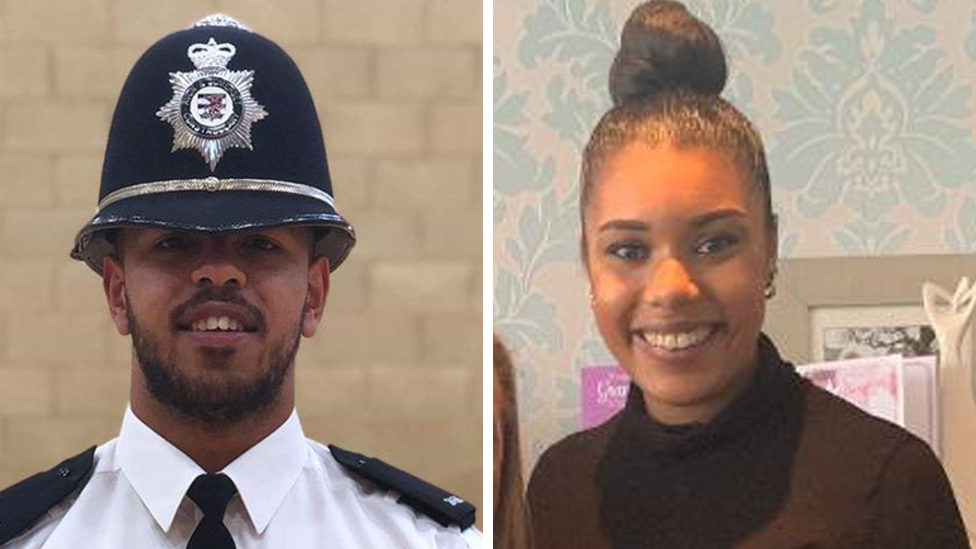
"There's such a bad stereotype of black people joining the police - I want to break away from that."
Alisha Sunneh, 20, is a university student who is in the process of enrolling to become a police officer in Manchester where she lives.
She says her family and some friends are critical of her plans.
"My parents are so against it, my dad says I should know which line I stand on."
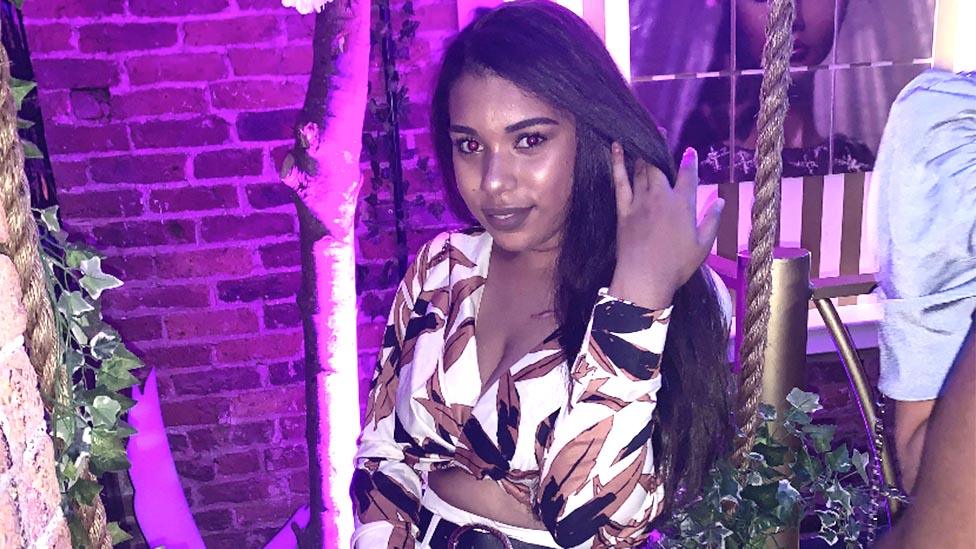
Alisha is studying law at Leeds Beckett University
According to government data, external, in March 2019 just over 93% of police officers in England and Wales were white, compared to only 1.2% who were black, and 6.9% who were BME overall.
There has been a slight increase over the past decade - in 2009 it was 1% who were black and 3.9% BME - but the force is still not representative of the general population.
Allow X content?
This article contains content provided by X. We ask for your permission before anything is loaded, as they may be using cookies and other technologies. You may want to read X’s cookie policy, external and privacy policy, external before accepting. To view this content choose ‘accept and continue’.
When Love Island's Mike Boateng, 24, first revealed he used to be a police officer, he received a mixed response on social media.
Allow X content?
This article contains content provided by X. We ask for your permission before anything is loaded, as they may be using cookies and other technologies. You may want to read X’s cookie policy, external and privacy policy, external before accepting. To view this content choose ‘accept and continue’.

Allow X content?
This article contains content provided by X. We ask for your permission before anything is loaded, as they may be using cookies and other technologies. You may want to read X’s cookie policy, external and privacy policy, external before accepting. To view this content choose ‘accept and continue’.
There were also words of encouragement...
Allow X content?
This article contains content provided by X. We ask for your permission before anything is loaded, as they may be using cookies and other technologies. You may want to read X’s cookie policy, external and privacy policy, external before accepting. To view this content choose ‘accept and continue’.

Allow X content?
This article contains content provided by X. We ask for your permission before anything is loaded, as they may be using cookies and other technologies. You may want to read X’s cookie policy, external and privacy policy, external before accepting. To view this content choose ‘accept and continue’.

While he's been in the Love Island villa, Mike Boateng's career in the police has come under scrutiny. His family has issued a statement, external in response to reports suggesting he is under investigation, external by Greater Manchester Police (GMP) for alleged "inappropriate behaviour". He denies the allegations.
GMP said in a statement to The Manchester Evening News, external: "Allegations were made regarding an officer in 2019 which are currently under investigation by the Professional Standards Branch. It is inappropriate to comment further whilst the investigation is ongoing."
Mike's family also alleged that he had experienced discrimination during his training with the force.
GMP confirmed that a complaint had been made in 2017.
A spokesperson said: "There is absolutely no place for racism within GMP - it is important that all our staff are treated fairly and with respect and we have made significant improvements to the diversity of our workforce over recent years."
'I've been called a traitor'
Alex Jagne, 24, is a police officer from Bristol.
Growing up, he dreamed of joining the force and would spend hours watching police shows on TV - much to his family's annoyance.
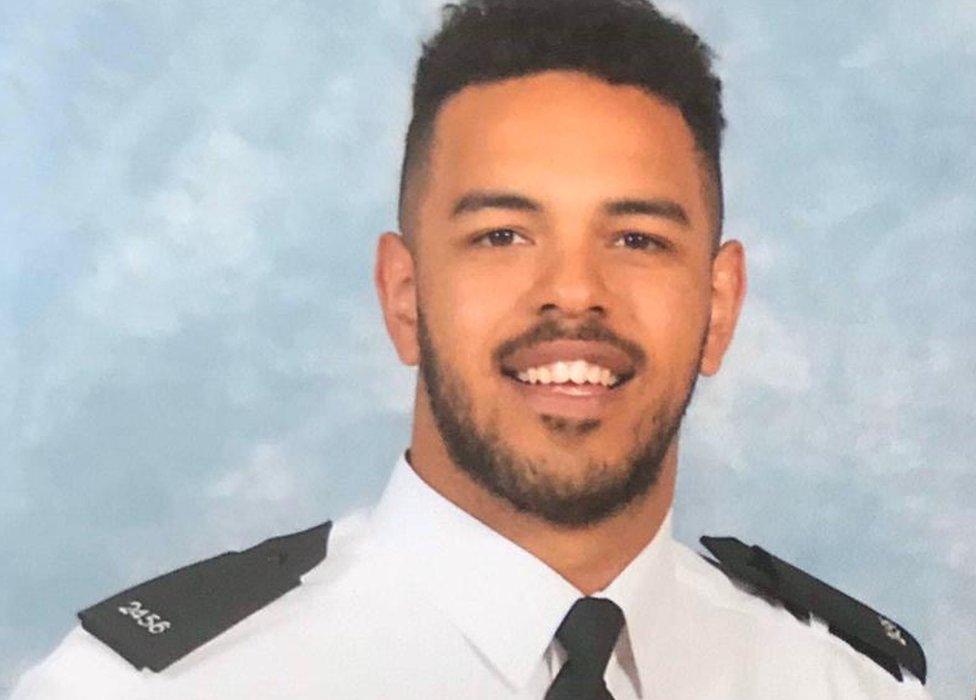
'The most exciting thing is never knowing what you're going to do when you go into work'
At first family members had reservations about him joining the police, but now Alex says "my family are massively supportive".
But it's been a bigger ask to get his mates to support his career choice.
"People have had their own experiences and preconceptions of the police. I've been told several times that I am a traitor to the black community.
"Throwing negative comments around doesn't help because it makes other black people feel they can't apply," he says.
So why aren't more black people joining the force?
"There's a complicated history in terms of the way black people have historically been treated by the police," says Adam Pugh, an ex-police officer and anti-racism campaigner.
"There's a real mistrust. I don't think the police have properly tried to address that."
It's been 20 years since an inquiry into Stephen Lawrence's death found London's Metropolitan Police to be "institutionally racist".
The inquiry said the government should make it a priority to "increase trust and confidence in policing amongst minority ethnic communities".
"Charities like the Stephen Lawrence Trust have done important work and made changes," Adam tells Radio 1 Newsbeat.
"But we still see the same disparities - in terms of stop and search or black people having excessive force used against them."
Black people in England and Wales were nine-and-a-half times more likely than white people to be stopped and searched in 2017/18, according to the Home Office, external, and Metropolitan Police officers are four times more likely to use force against black people compared to white people, according to Met Police data from 2018.
Growing up on a council estate in south east London, Adam saw the tensions between the police and the black community play out.
"No black person on that estate wanted to be a police officer because they were stopped and searched every day or spoken to like dirt.
"To encourage more young black people to apply they have to build that relationship between the two communities - that's going to take time and commitment."
The Home Office told Radio 1 Newsbeat that work is underway in the police to ensure a "more representative workforce".
"Our drive to recruit 20,000 officers over three years gives us a significant opportunity to attract a wide range of people into a career in policing and support the police to become more representative of the communities they serve.
"As well as recruiting new officers, it is vital that forces continue to look at retention and progression as a means of ensuring representation at all levels and in policing."


Follow Newsbeat on Instagram, external, Facebook, external, Twitter, external and YouTube, external.
Listen to Newsbeat live at 12:45 and 17:45 weekdays - or listen back here.
- Published24 February 2019
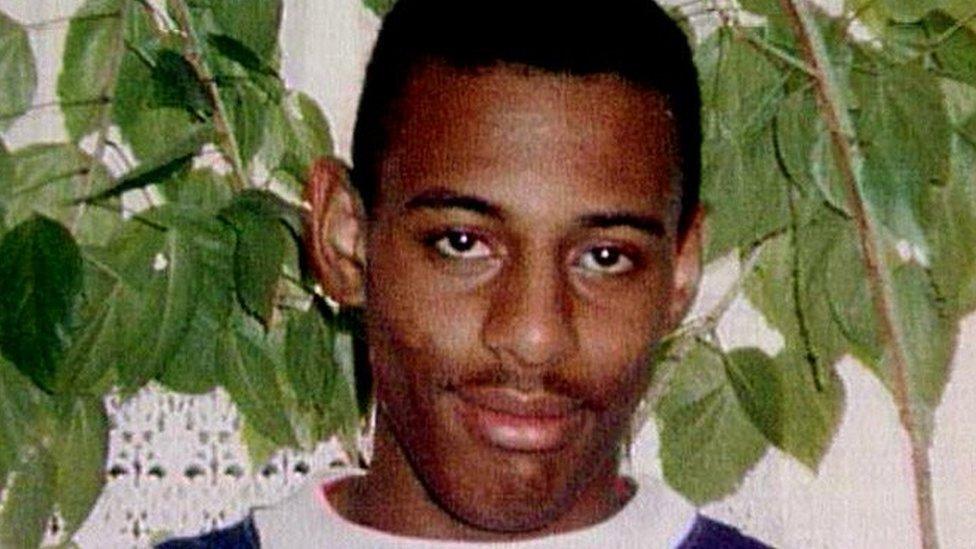
- Published17 January 2018
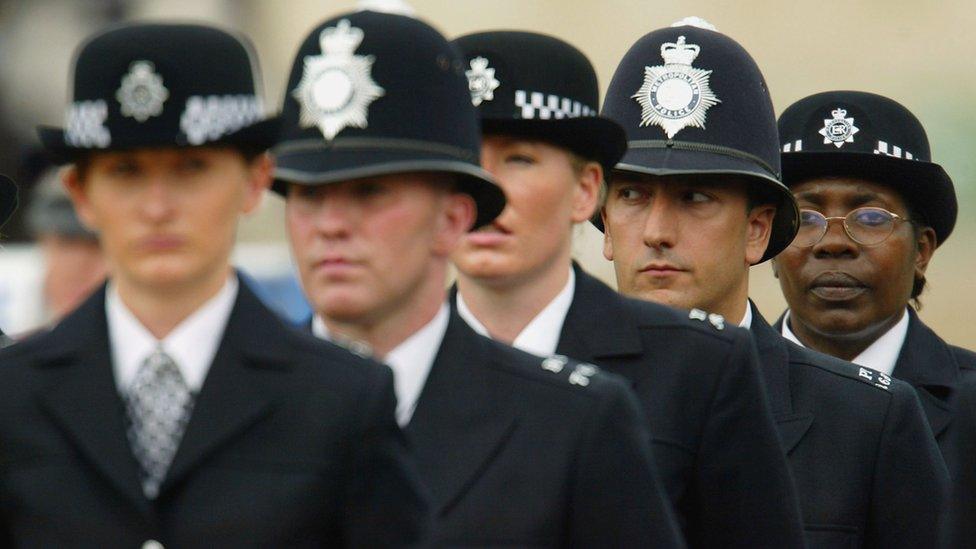
- Published11 August 2015
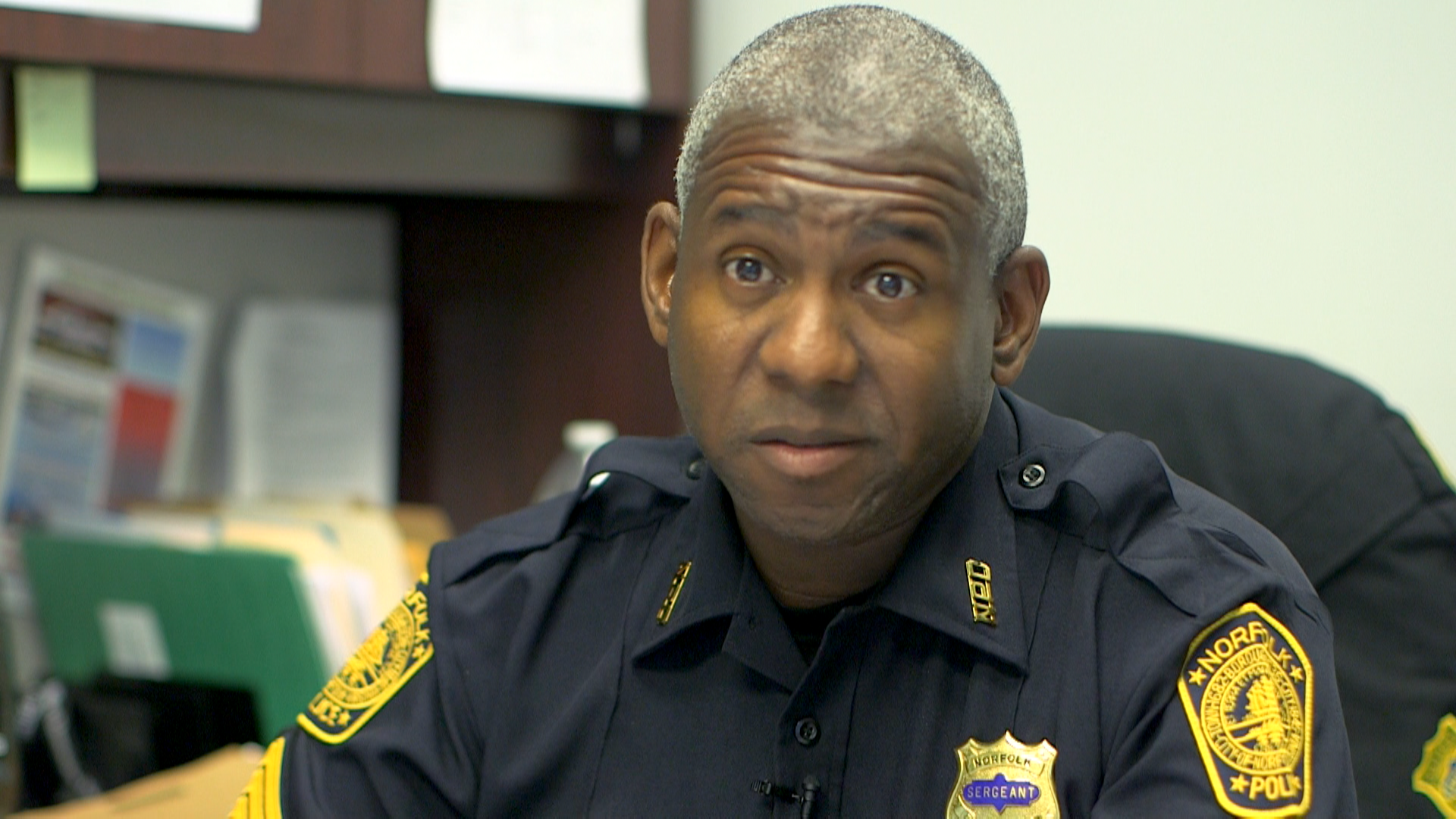
- Published24 May 2018
